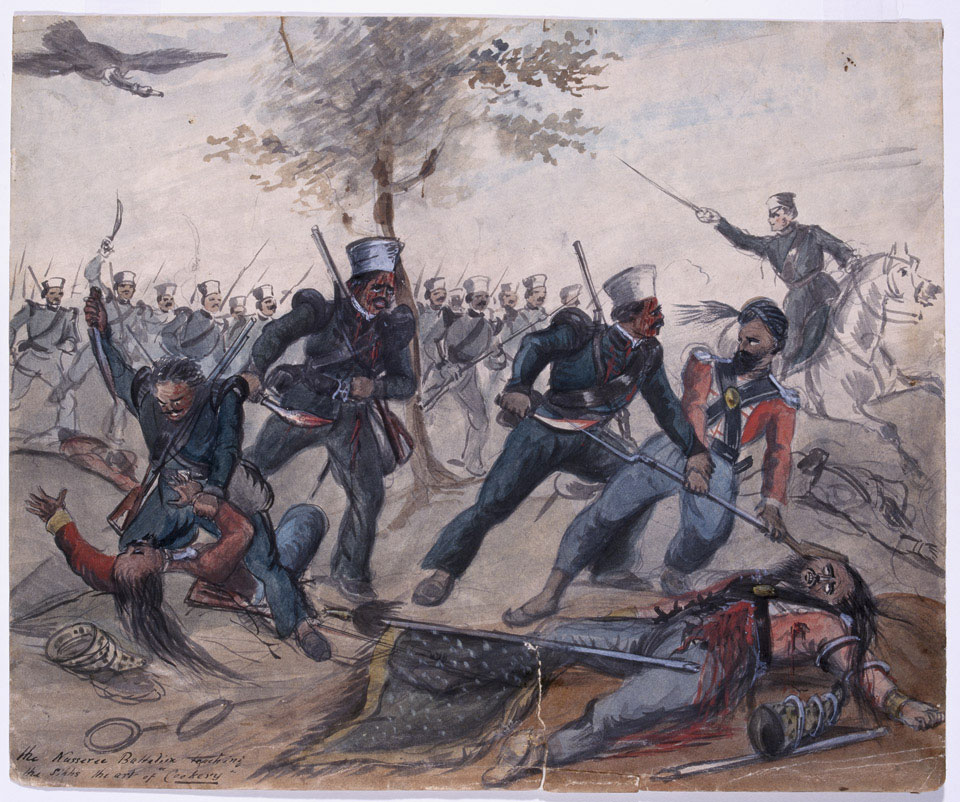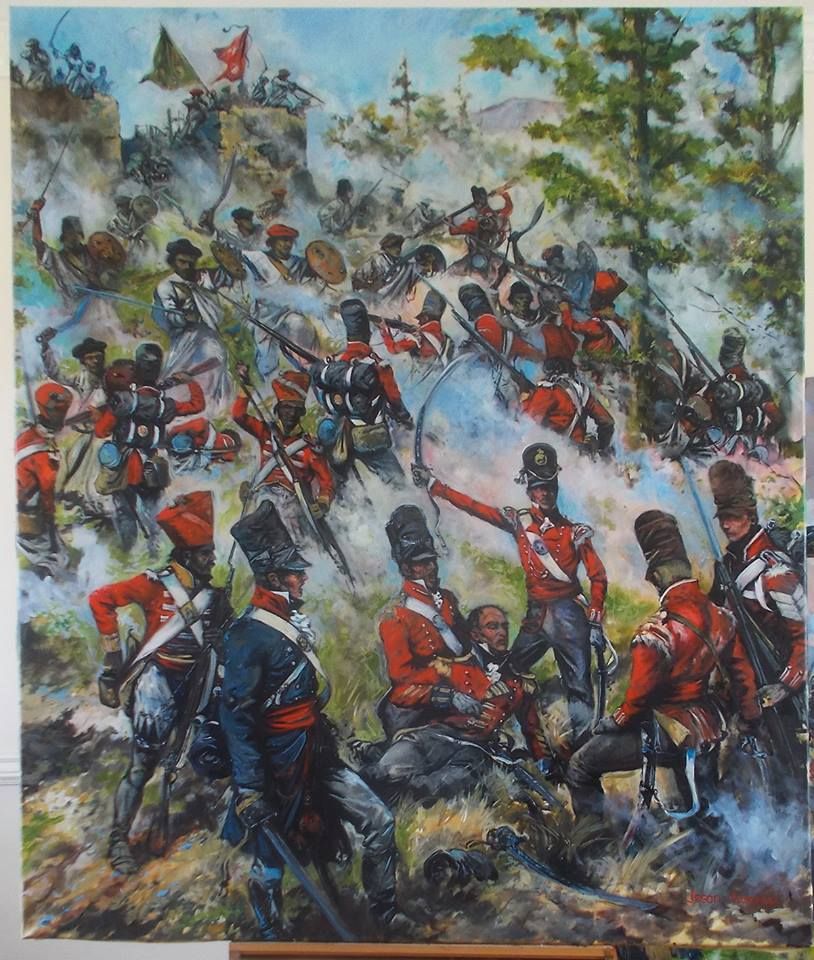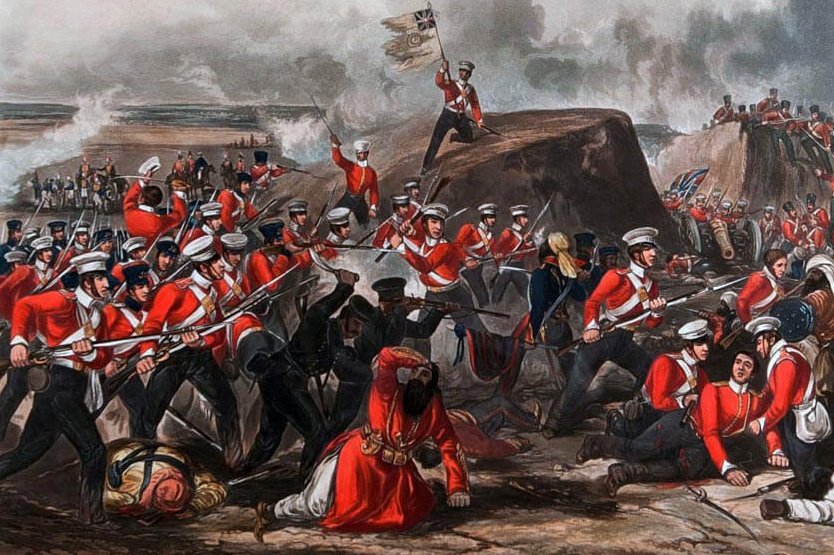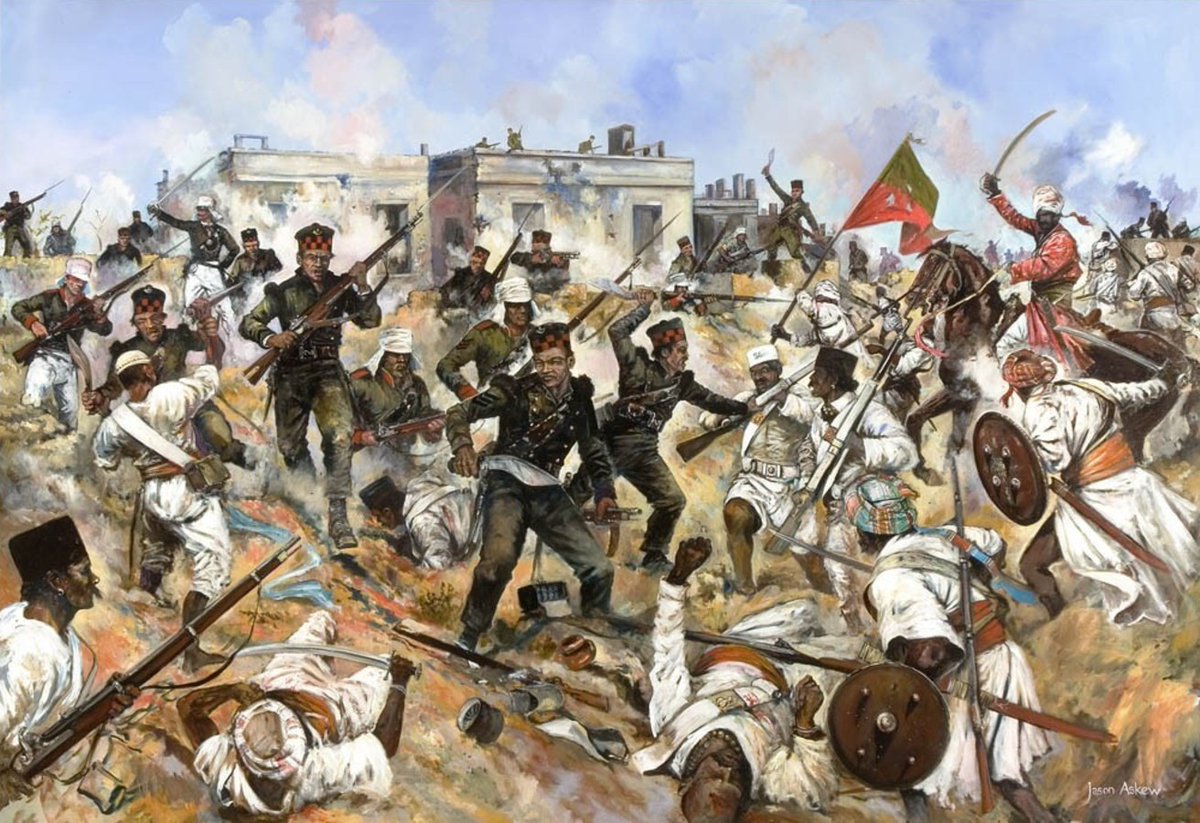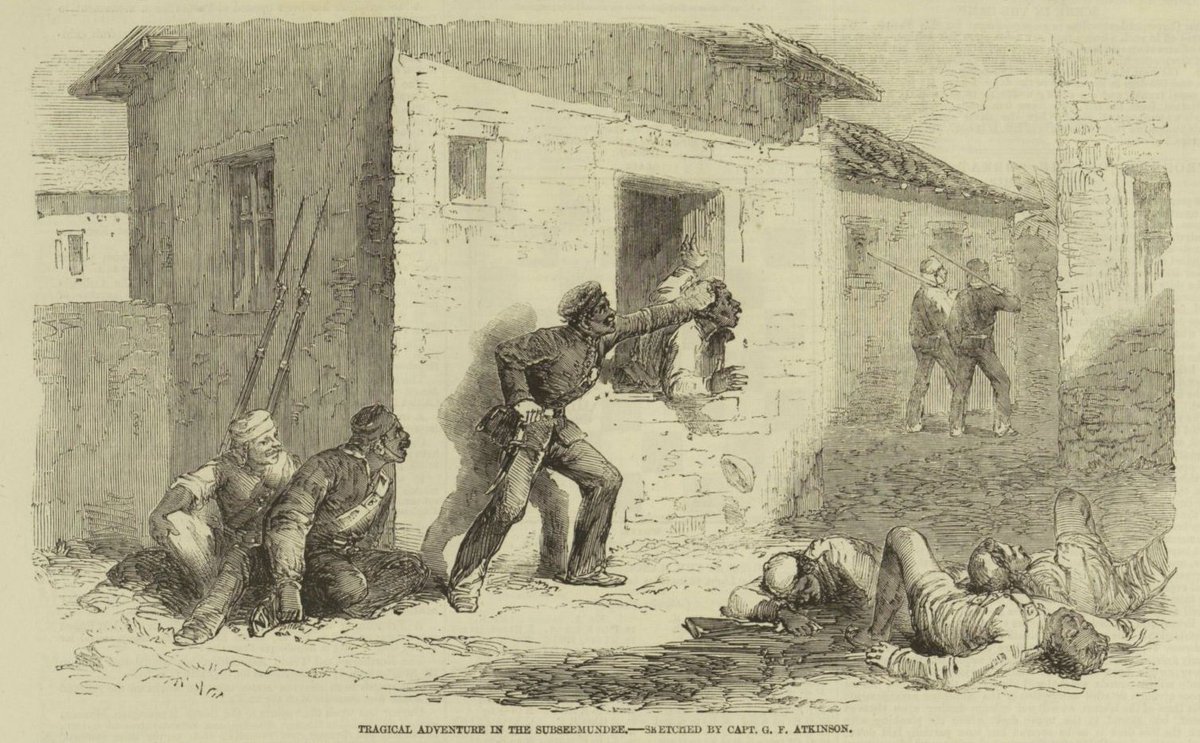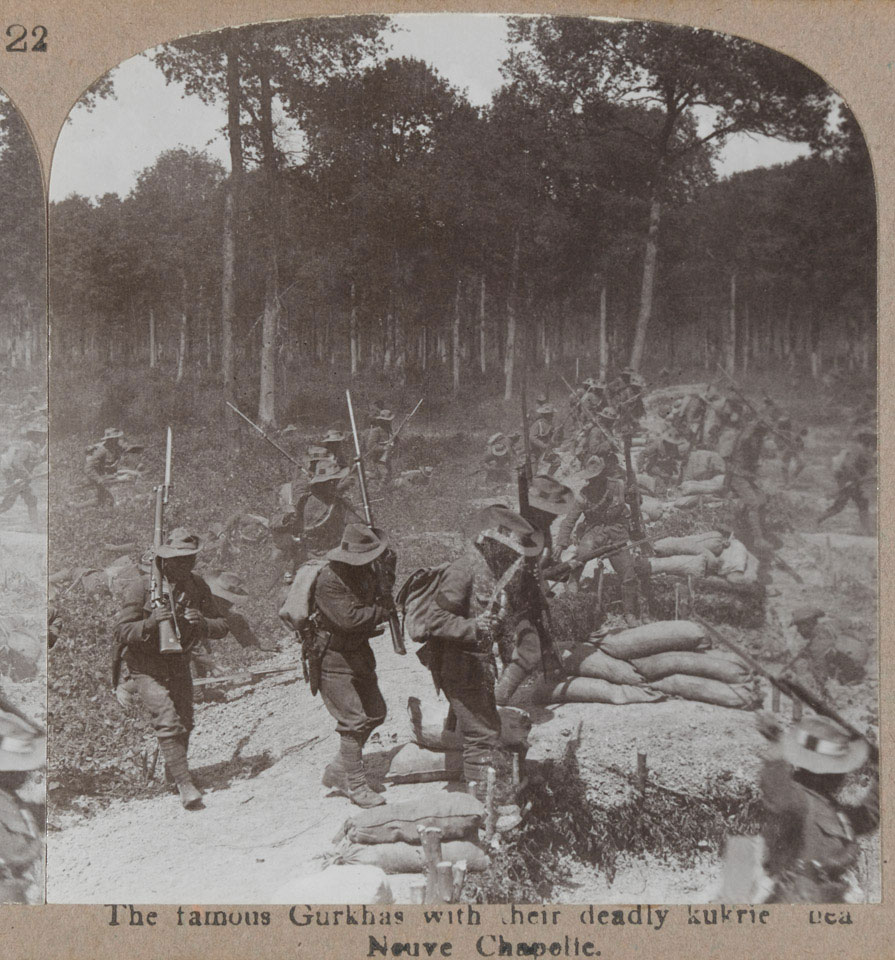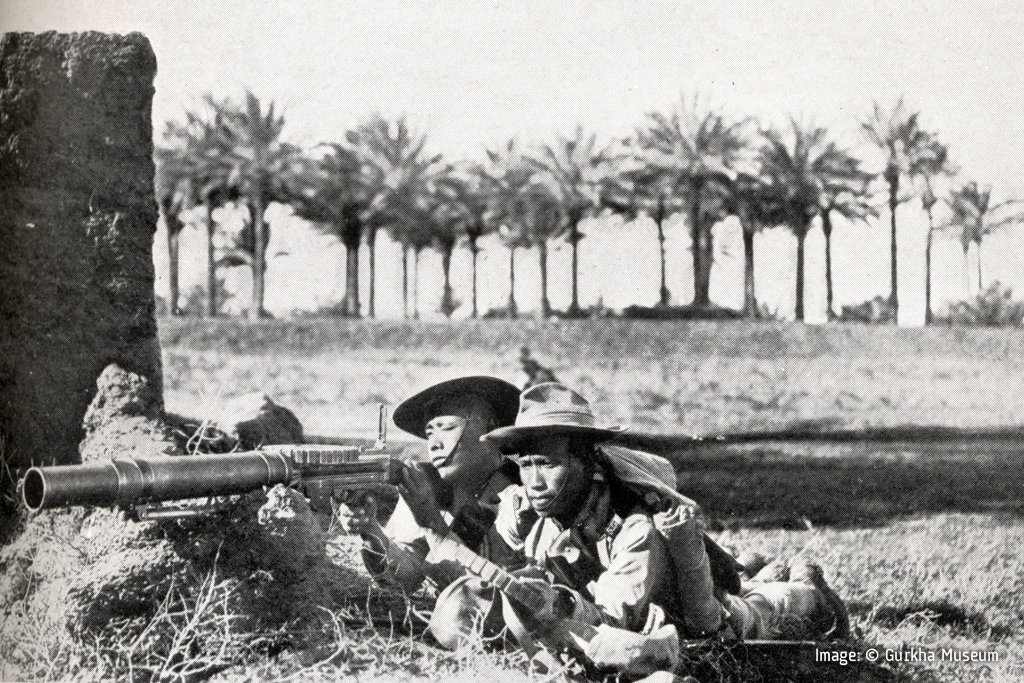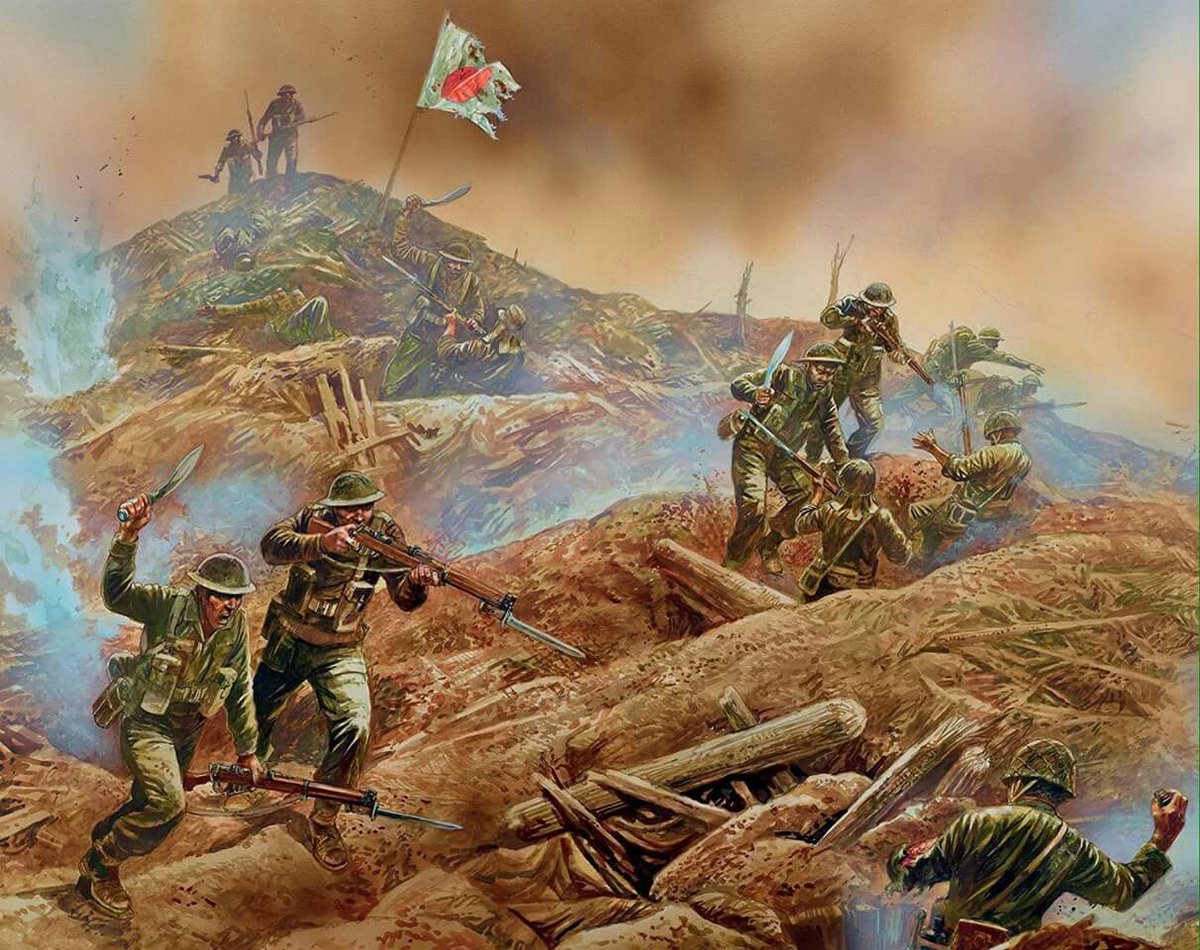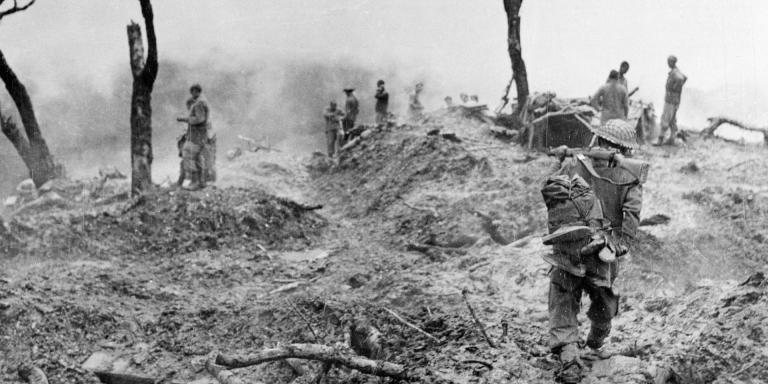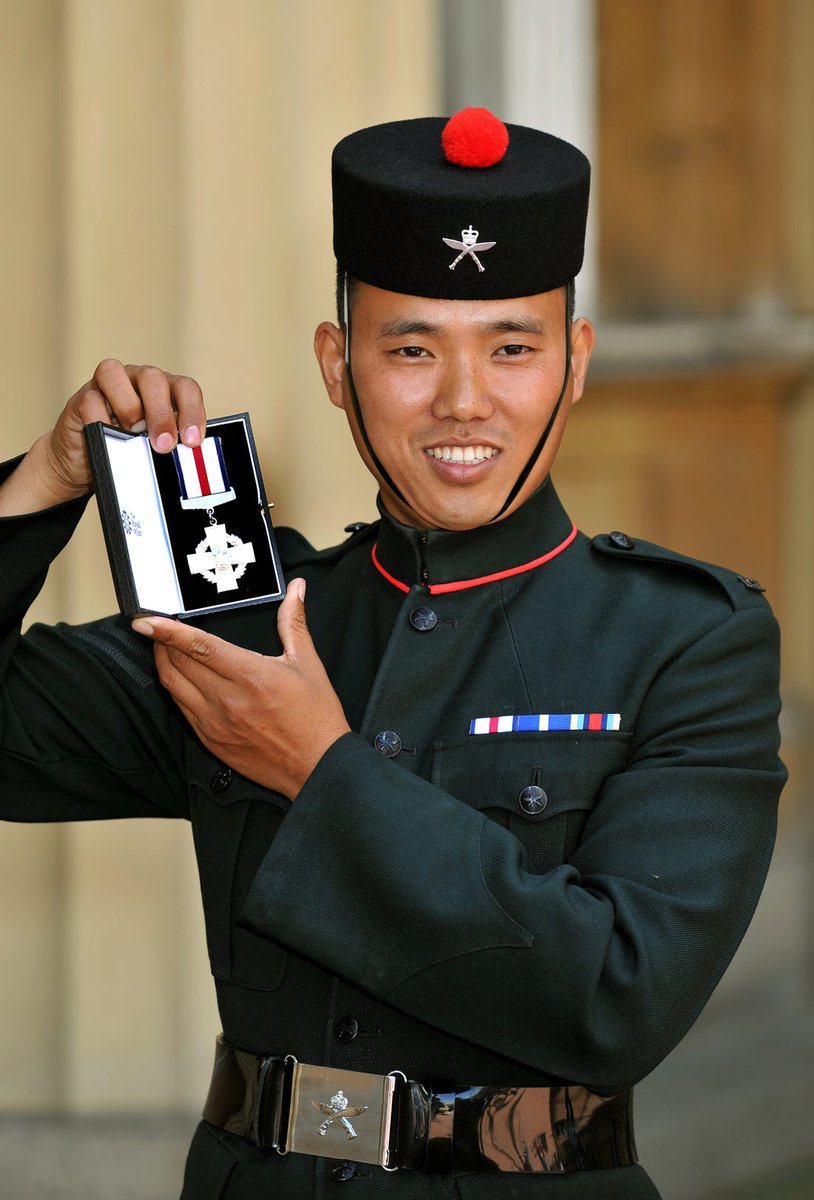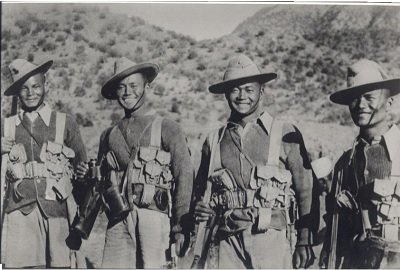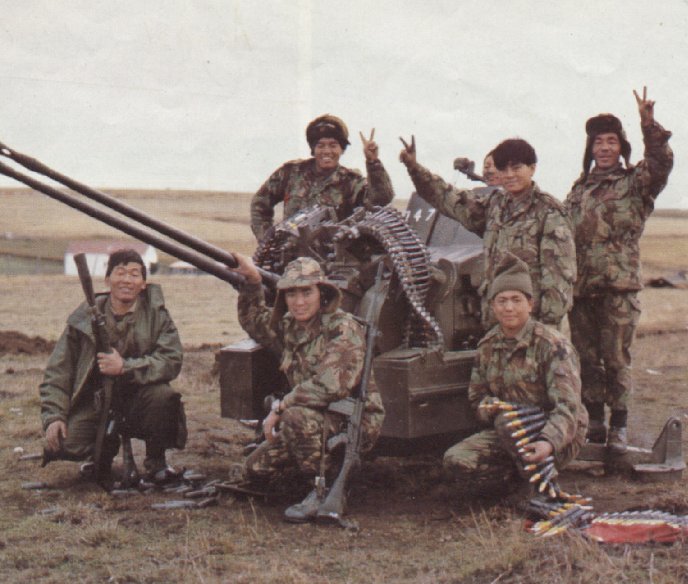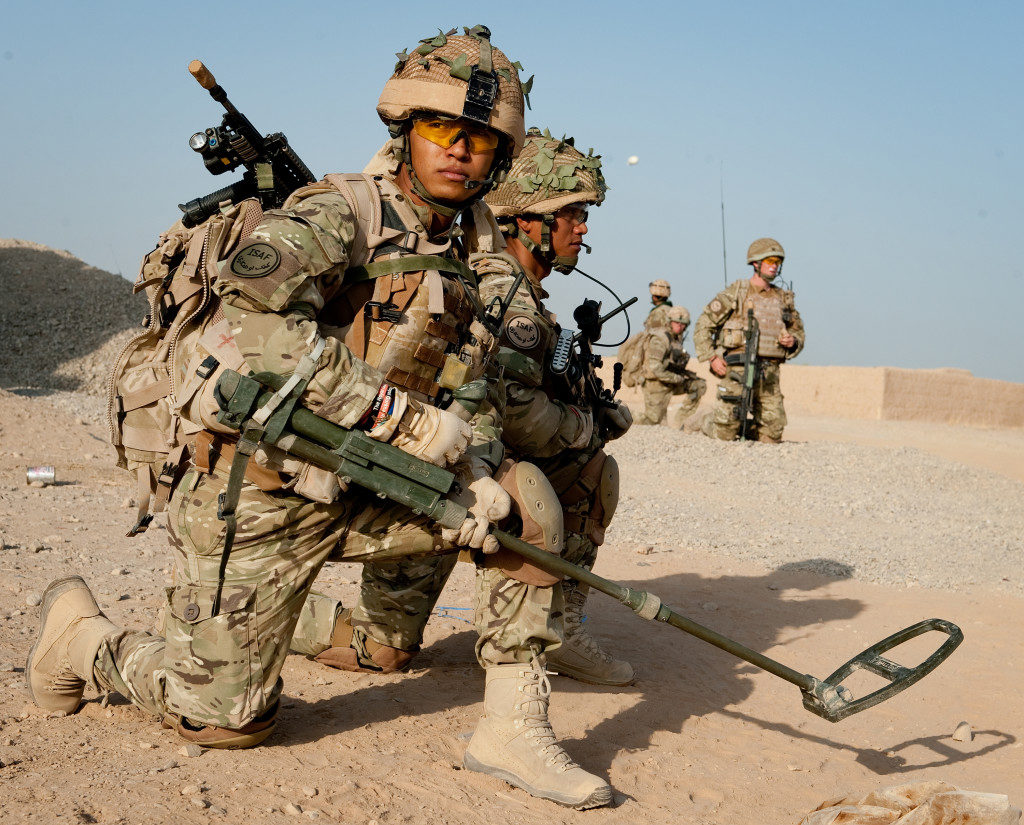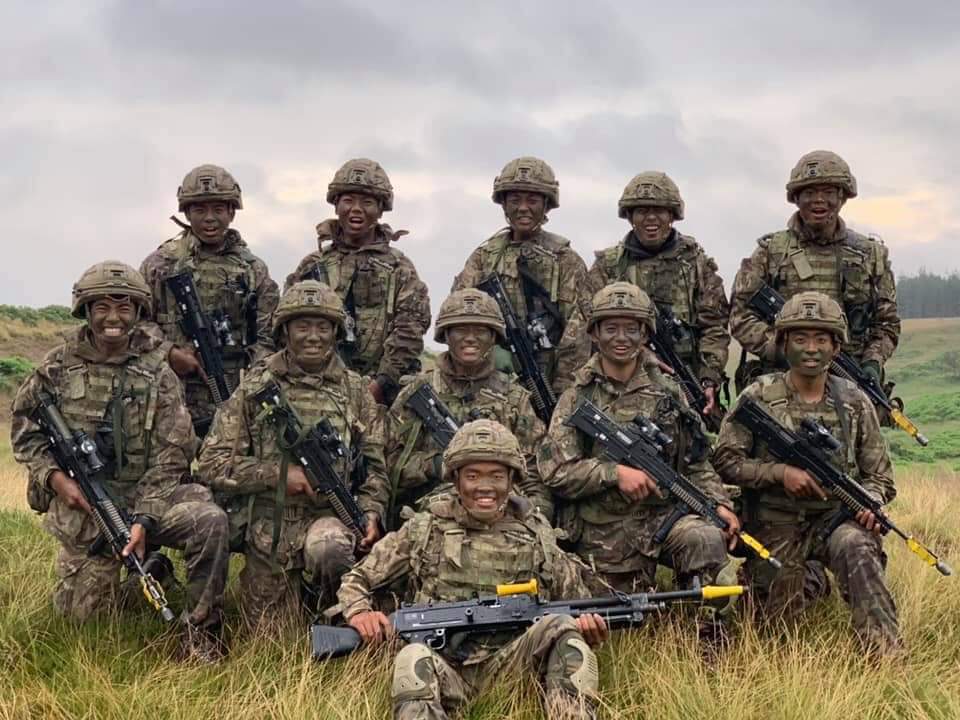The Gurkhas have struck terror into the hearts of Britain& #39;s enemies for two centuries with an unwavering loyalty to the nation and the crown
The East India Company (EIC) launched a war in 1814 to neutralise and contain the growing Gorkhali Empire, which was threatening to burst out of the mountains and wreak havock across the Gangetic Plain, while also getting one step closer to the mysterious land of Tibet.
The Anglo-Nepalese war was a gruesome and expensive hill conflict that was won thanks to the EIC and Britain& #39;s overwhelming superiority in numbers and technology. But, they were so impressed with the resolve of the Nepali troops they began to recruit them as early as 1815.
The newly raised Gurkha regiments (Sirmoor Rifles) first fought for the British during in the 3rd Maratha war in 1817, but would not cement their reputation as terrifying shock troops till the Sikh Wars in 1845. At the Battle of Aliwal and Sobraon they fought ferociously
and were always eager to engage the enemy in hand to hand combat, which usually led to their opponents being beheaded by the Kukri.
The British soldier had great respect for the Gurkha, not only because they were brilliant soldiers but because they drank like the British as well. Sir Edward Greathead remarked & #39;Their grog drinking propensities have created a great bond with British soldiers& #39;
The loyalty of the Gurkhas was unquestionable when the Mutiny of 1857 broke out, they stayed loyal to their officers and played a vital role in crushing the rebellion. Most notably during the early stages of the siege of Delhi a detachment of the Gurkhas and 60th rifles
held Hindu Rao& #39;s house providing a first line of defence for the British position on Delhi ridge. The 2nd regiment was at Delhi for the entire siege and was given the honour of garrisoning the Red Fort. During the relief of Lucknow all six battalions of the Gurkhas
were present, and they would go on to form a crucial part of the post-mutiny Imperial military in India.
During the Second-Afghan war the Gurkhas had the honour of being the first regiments to cross the frontier, they were instrumental in winning the battle of Peiwar Kotal where they charged up a hillside and drove the Afghans back to Kabul. https://twitter.com/HopkirkPeter/status/1279816361972314112?s=19">https://twitter.com/HopkirkPe...
For the rest of the 1800s they served along the North-West frontier providing a forward defence against the wild mountain tribes. During the First World War over 100000 Gurkhas volunteered, and 20000 were casualties, fighting from Neuve Chapelle, to Gallipoli, to Mesopotamia.
110000 served during the Second World War, fighting across the globe but most importantly at Imphal and Khomia where they helped save the Raj from the advancing Japanese. The Gurkha tradition of beheading their foes was very much alive during this conflict,
A New York times reporter witnessed the aftermath of a Gurkha night raid at Wadi Akarit in Tunisia in 1943. He described the bloodcurdling sight of severed & #39;Teutonic Heads& #39; and headless bodies littering the rocky defiles, while the small Gurkhas warmly welcomed him into camp.
A New Zealand officer attached to the regiment described a how one soldier decapitated two Germans with & #39;two lazy swings& #39; of the kukri. This should demonstrate the indispensable nature Gurkhas and why after independence the British retained four regiments. https://www.nytimes.com/1964/10/18/archives/ayo-gorkhali-the-gurkhas-are-upon-you-is-the-battle-cry-of-one-of.html">https://www.nytimes.com/1964/10/1...
During the Cold War the Gurkhas served in every conflict, becoming experts in counter insurgency and jungle warfare. During the Falklands war the Gurkhas reputation was well known, with many Argentine soldiers fleeing from them for fear of being beheaded.
They were held in reserve for most of the war as they would have been the first troops to retake Stanley, however the Argentininans surrendered avoiding a battle. At 11:05 they are told of the surrender and they are described as looking disappointed. https://m.youtube.com/watch?v=WTaj-PyTrxE">https://m.youtube.com/watch...
In Afghanistan and Iraq they again proved there worth, with the story of Dipprasad Pund being the most notable. He single handedly fought off an attack by 12 to 30 Taliban using up all his ammunition and beating one to death with a tripod.

 Read on Twitter
Read on Twitter